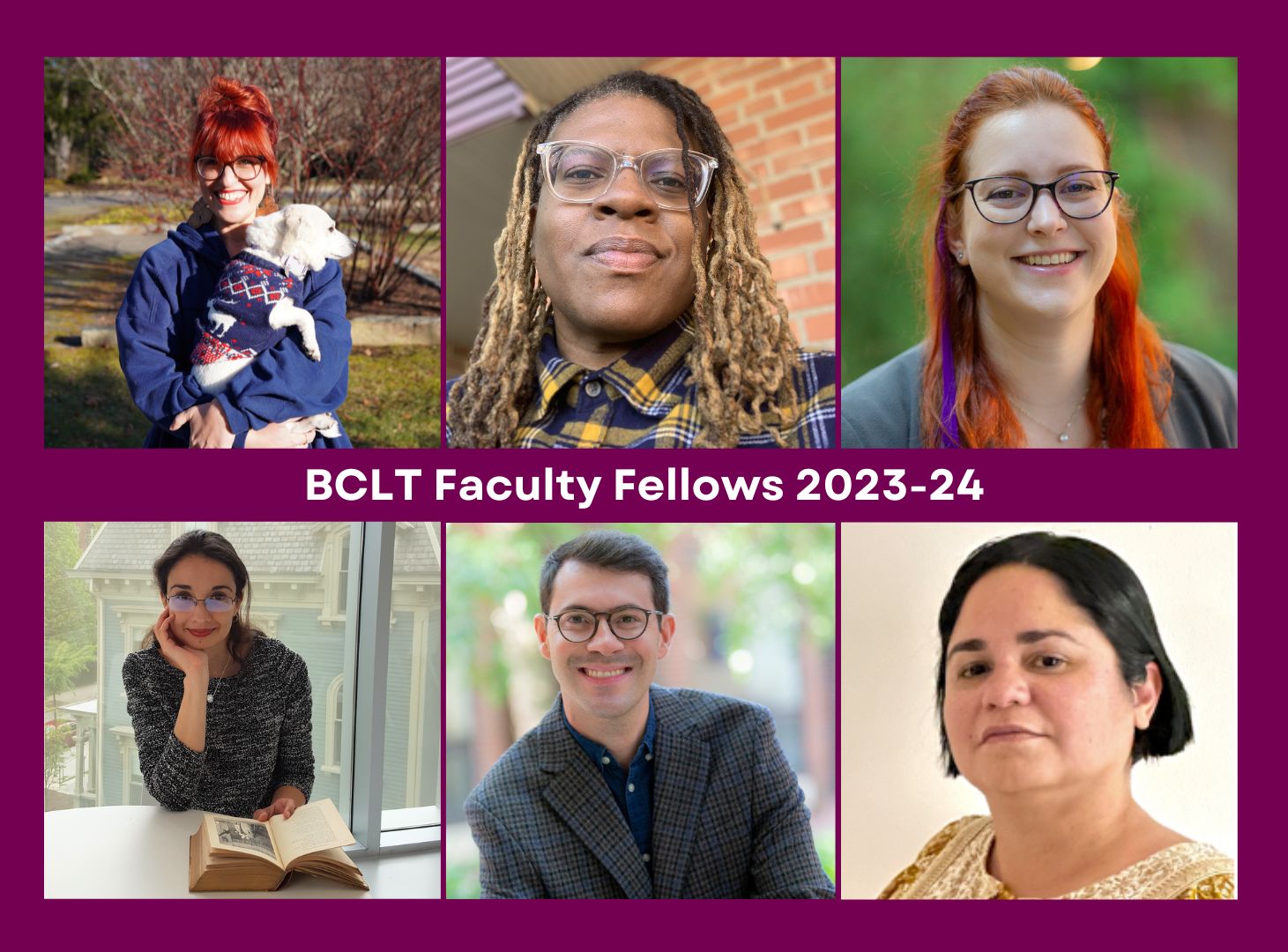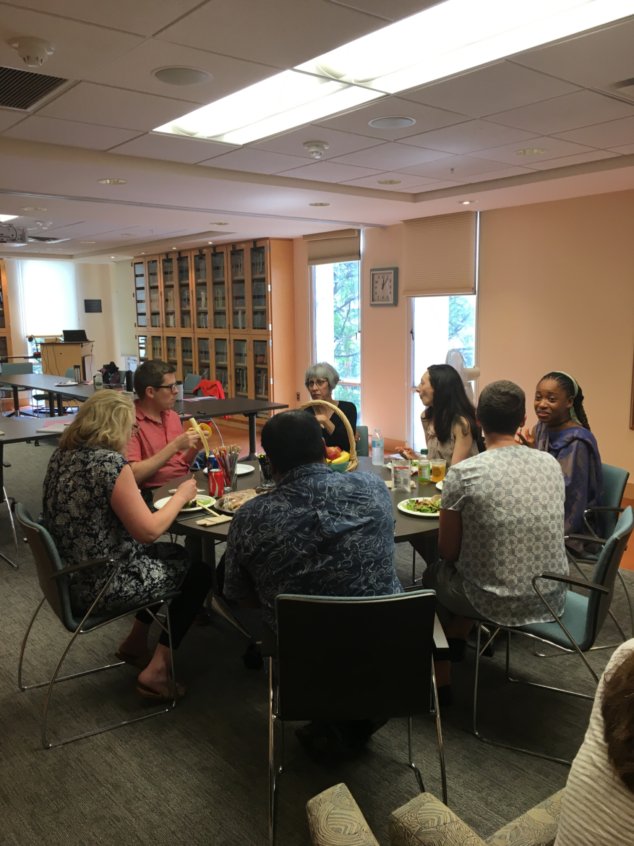Timeline
- Application Live: April 2023
- Application Due: May 15, 2023
- Decisions Announced: May 19, 2023
- Kickoff Meeting: May/June
Application for 2023-24 Cohort
The BCLT Faculty Fellows application consists of responses to the two questions below, a CV, and syllabus (if applicable). Please submit in PDF format using the following naming convention: "Faculty Fellows_your last name.pdf" to Kathryn Byrnes (kbyrnes@bowdoin.edu) no later than May 10, 2023.
- Explain your interest in joining the Baldwin CLT Faculty Fellows program. What goals do you have for your own teaching practice (e.g., gaining a better understanding of learning theory and evidence-based teaching; increasing your satisfaction with teaching; collaborating with instructors across campus; attending to a more diverse student body). [250 words]
- What Spring 2024 course would you like to focus on during this year-long program? (If previously taught, include syllabus.) What do you aspire for students to remember/say on their course evaluations and/or in five years after taking this class that reflects how they experienced inclusive excellence in this class? [250 words]

